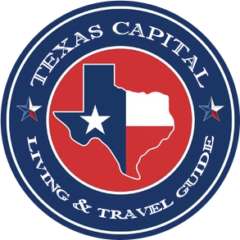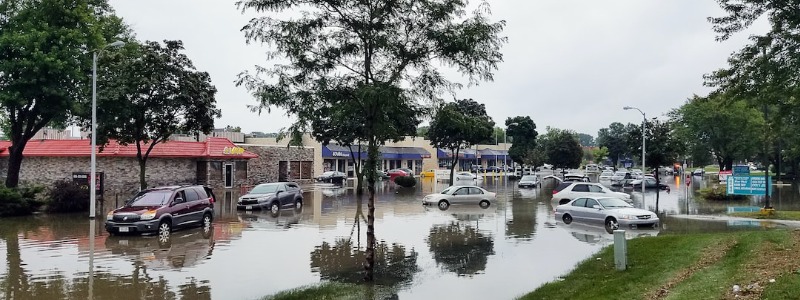What is a Texas Public Adjuster?
Contents
- What is a Texas Public Adjuster?
- What are the types of claims adjusters?
- What’s the difference between public adjuster and insurance adjuster?
- Are public adjusters worth the money?
- Who regulates public adjusters in Texas?
- What is the difference between a public adjuster and an insurance adjuster?
- Texas Public Adjusters For Property Damage Insurance Claims.
- Texas Insurance Claim Process
- How much do public adjusters charge in Texas?
- Why hire a Public Adjuster in Texas?
- Finding a Public Adjuster Near You
Texas Public Adjusters are experts who look out for YOUR best interests.
Do you have a disagreement with your insurance provider? Have they made you a lowball offer? If this is the case, hiring a public adjuster in Texas to assist with an insurance claim can be a life-changing decision. A growing number of Texas residents are now hiring claims adjusters, also known in the insurance industry as Public Adjusters.
A public adjuster can file as well as negotiate your claim for flood, fire, smoke, wind, and hurricane damage, as well as damage from other perils and even loss of business income if property damage is involved. Your insurance company will send out THEIR adjuster, but you can hire your OWN public insurance adjuster to evaluate your property loss and assist you in filing insurance claims.
For example, if a storm destroys a portion of a roof, a homeowner is inclined to underestimate the cost of a new roof and may even overlook expenditures such as the expense of removing the damaged roof.
A public adjuster in Texas is an insurance claim expert who will collaborate with you and your insurance company until the claim is processed. A public adjuster works for you, the policyholder, and their primary objective is to make sure that you receive a full payout on your insurance claim. They are not allied with any insurance company.
What are the types of claims adjusters?
- Public insurance adjusters, also known as private adjusters, are independent contractors who do not work for insurance companies.
- Independent adjusters are individuals who contract with insurance providers and work at their behest.
- Company adjusters, also known as staff adjusters, work directly for the insurance company, so their top priority is the firm’s bottom line.
What’s the difference between public adjuster and insurance adjuster?
While “public adjusters” only work for the insurance policyholder, independent adjusters are compensated by the insurance company to handle the claim on their behalf. With many clauses and procedures associated with a normal insurance property claim, “Public Adjusters” assist policyholders.
The only type of claims adjuster who works on behalf of the policyholder and fights for you during the insurance claims resolution process is a Public insurance adjuster.
Are public adjusters worth the money?
There’s no clear answer as it depends on various factors, primarily how complex a claim is and how much coverage you need to make a successful recovery. Hiring a public adjuster may not be necessary if you have a relatively straightforward claim or don’t require much coverage. On the other hand, if you have an intricate claim that requires accurate documentation and verification from your insurer, then enlisting the help of an experienced adjuster could prove beneficial for getting what you deserve from your insurance company.
Who regulates public adjusters in Texas?
Public adjusters in Texas help individuals, business owners and other entities to prepare and present insurance claims to their insurers. The Texas Department of Insurance (TDI) regulates public adjusters, who are required by law to be licensed before offering services in the state.
The TDI is responsible for issuing licenses and regulating the activities of public adjusters to protect consumers from unethical practices. All public adjuster license holders must adhere to policies outlined by the TDI, such as not misleading or misrepresenting facts when conducting business with clients. Additionally, they must keep accurate records of all documents related to a claim and update their license information if any changes occur. Furthermore, it is against Texas Law for an unlicensed individual or company to offer public adjusting services without proper licensure from the TDI.
What is the difference between a public adjuster and an insurance adjuster?
A public adjuster and an insurance adjuster are both professionals who help people resolve claims when they’ve experienced a loss. However, there is a distinct difference between the two that it’s essential to understand. A public adjuster is a professional who works for the policyholder to ensure they receive fair compensation from their insurance company after filing a claim. An insurance adjuster, on the other hand, works for the insurer and assesses losses on behalf of the company to determine how much money should be paid out.
Public adjusters typically have extensive knowledge of state laws and regulations related to filing claims and experience with estimating damages and negotiating contracts with insurers. They review policies and ensure all documentation is accurate before submitting it for processing.
Texas Public Adjusters For Property Damage Insurance Claims.
You can work with the insurance company’s adjusters or hire your own public insurance adjuster. The participation of a public insurance adjuster almost always leads to significantly higher insurance settlement payments. All public adjusters in Texas must be licensed, and adjusters must maintain their license with 24 hours of continuing education. Public adjusting is not appropriate for all claims. A public adjuster is typically used for large claims, challenging issues, complex insurance policies with vague language that does not benefit you as the policyholder, or if you need assistance with the insurance claim process and talking directly with an insurance carrier.
A public adjuster is typically used for large claims, difficult issues, complex insurance policies with vague language that does not benefit you as the policyholder, or if you need assistance with the claim process and handling an insurance company.
Although fees are negotiable, public adjuster fees are usually 10-20%. This restriction applies to first claims for damages brought on by the disaster. For claim payments made before the day they enter into a contract with you, public adjusters are not permitted to impose fees. Within ten business days of the contract’s execution, an insured or claimant may terminate it without incurring any fees. Disaster Fees: Public adjuster costs are capped at 10% of the claim payout for the first year following the governor’s proclamation of a state of emergency due to a natural catastrophe.
Texas Insurance Claim Process
Texas Public Adjusters are insurance claims specialists who interpret insurance policy provisions and are damage valuation experts. They assess the damage caused by the loss and prepare an expert estimate. They will negotiate with the insurance company on the insured’s behalf until the claim is settled correctly.
Homeowners Claims Process
Homeowners filing insurance claims can be incredibly daunting, especially when navigating the bureaucracy of paperwork and understanding complex policy language. But homeowners don’t have to go through it alone – enlisting the help of a public adjuster can make all the difference for those with property damage or other losses caused by fire, weather events, and other covered occurrences.
A public adjuster is an independent third party who specializes in evaluating and negotiating insurance claims on behalf of homeowners. Unlike a traditional insurance company adjuster who works for the insurer, a public adjuster will work only for you; they are experienced in reading and interpreting policies and representing your interests throughout the claims process. A good public adjuster should also be able to estimate repair costs accurately and provide guidance on how best to proceed with your claim.
Commercial Claims Process
A successful outcome of a commercial insurance claim is contingent on understanding the process, being aware of potential pitfalls, and having an experienced advocate to help navigate it. Fortunately, public adjusters exist who specialize in advocating on behalf of policyholders in commercial property damage and business interruption claims.
When selecting a public adjuster for a commercial claim, it’s essential to choose someone with experience handling similar cases. These professionals are knowledgeable about all aspects of the claims process—from gathering evidence to working with insurance carriers—and can help protect your rights as a policyholder throughout the entire process while striving to get you maximum compensation under your policy terms.
Multi-Family Claims Process
When dealing with multi-family insurance claims, understanding all the steps involved to know what to expect when filing your claim is key. Property owners must document any damage accurately, get proper estimates from reputable contractors if necessary, submit paperwork on time, and keep track of communication with their insurers throughout the process. An experienced public adjuster will help you complete these steps quickly and efficiently while protecting your rights as a policyholder.
How much do public adjusters charge in Texas?
In general, public adjusters in Texas charge between 10% and 20% of the total claim amount as their fee. This fee is separate from any fees paid by the insurance company to the policyholder to cover repair costs or replace lost items. It’s important to note that not all public adjusters will charge the same rate; some may offer discounts or flexible payment plans depending on the circumstances. Additionally, if a policyholder chooses to hire a lawyer instead of an adjuster, they should expect to pay hourly rates, which could be significantly higher than those charged by an experienced public adjuster.
Why hire a Public Adjuster in Texas?
Public adjusters have extensive knowledge of insurance law and regulations to ensure that claims are handled according to state law. They also understand how different insurance companies operate and what coverage they offer, which helps them negotiate better settlements with your insurer.
An insured-policyholder must demonstrate the claim to the insurance company, as asserted in their insurance policy. Public Insurance Adjusters are specialists in the procedure of all areas of an insurance claim. Licensed public adjusters are well-versed in the complexities of insurance policies. This “Levels the Playing Field” with the your insurance company.
Forty-four states, including Texas, acknowledge that the policyholder requires someone familiar with the complex claim process to act as the policyholder’s advocate. As a result, the “Public Adjusting” vocation is recognized, licensed, and regulated.
Most Public Adjusters previously worked as insurance adjusters for large insurance companies. With this knowledge, they can prioritize you, the policyholder, over the insurance company. This way, you can benefit from the public adjuster’s insider knowledge and maximize the value of your claim.
Your Public Adjuster works only for you and is not paid until the insurance provider compensates you.
Finding a Public Adjuster Near You
Finding and hiring the best public adjuster in your area can be difficult for the average policyholder. You might not understand what separates an excellent public adjuster from a bad one. You may be unsure which licenses, certifications, and qualifications to seek. Do your research.
Sources:

